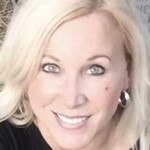Historical forensic investigations, or the identification of historical remains, involve some of the most challenging conditions. Records are inconsistent, incomplete or missing, making accurate reconstruction of a story difficult. The poor condition of associated skeletal remains can restrict the types of analyses that can be done, or evidence may be in such limited quantities that strategic decisions must be made on which types of analyses will be most informative and which will be excluded.
These challenges make resolution incredibly difficult, and cases often remain unsolved. Though often considered a specialty field, the approach to resolution bears many similarities to contemporary cases, and analysts are faced with similar questions: how can you narrow down identities for a complete or partial set of remains with limited reference information? How do you advance a case with a perfect autosomal STR profile but no DNA database for comparison? What is the most efficient and humanitarian approach to identification of remains? What options are available to clarify confounding information or to generate additional investigational leads?
Next-generation sequencing (NGS) provides a more efficient way to uncover more high-resolution data from cases that would otherwise have gone cold with traditional technologies. Register for this webinar to learn about three historical cases, how NGS technology shaped the course of the investigation, and how NGS can strengthen and streamline your approach to contemporary casework.
Speaker

Angie Ambers, M.A., M.S., PhD, Associate Professor (Forensic Genetics), Henry C. Lee College of Criminal Justice & Forensic Sciences; University of New Haven Assistant Director, Henry C. Lee Institute of Forensic Science
Dr. Angie Ambers is an internationally recognized DNA expert and Assistant Director of the Henry C. Lee Institute of Forensic Science, a world-class institute that specializes in interdisciplinary research, training, testing, casework consulting, and education in forensic science. Dr. Ambers also holds an Associate Professor appointment in the Henry C. Lee College of Criminal Justice and Forensic Sciences at the University of New Haven.
Dr. Ambers specializes in characterization and identification of contemporary, historical, and archaeological human skeletal remains. In addition to skeletal remains cases and research, Dr. Ambers collaborated with the National Institute of Justice (NIJ) and the Forensic Technology Center of Excellence (FTCoE) to develop and disseminate a formal report on the use of Familial DNA Searching (FDS) in casework.
Who Should Attend?
- Government forensic lab personnel
- Commercial/private testing forensic lab personnel
- Law enforcement personnel
- Forensic anthropologists and odontologists
- Museum curators
What You Will Learn
- Learn about the challenges of three interesting historical investigations: skeletal remains discovered in the Himalayas; skeletonized remains uncovered by construction in Deadwood, South Dakota (America’s Wild West); and two adult male skeletons excavated from the La Belle shipwreck (from the French explorer La Salle’s last expedition)
- How next-generation sequencing created a more efficient, collaborative and humanitarian approach for each case, and provided the most informative data to guide the investigation
- Considerations and techniques that can benefit contemporary investigations
Xtalks Partner
Verogen
Verogen is a dedicated developer of human identification products for sequencing and analysis of forensic genomic samples. Working closely with the forensic community, Verogen places exceptional value on flexible, scalable solutions that deliver reliable results. For more information, please visit www.verogen.com.
You Must Login To Register for this Free Webinar
Already have an account? LOGIN HERE. If you don’t have an account you need to create a free account.
Create Account
